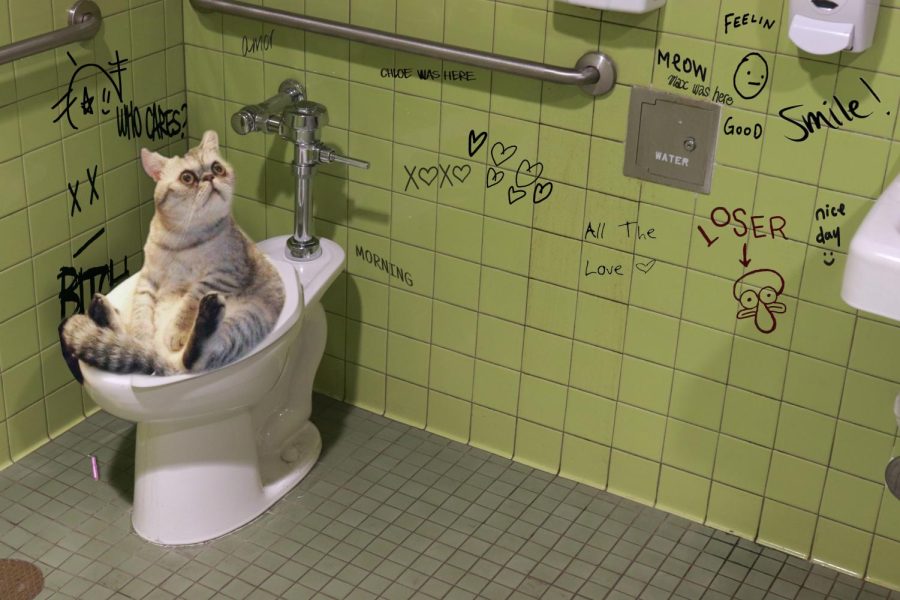Avoid Plumbing Problems: Never Flush Cat Poop Down Your Toilet - Expert Guidance
Avoid Plumbing Problems: Never Flush Cat Poop Down Your Toilet - Expert Guidance
Blog Article
Every person seems to have their personal assumption about Don’t flush cat feces down the toilet.

Introduction
As feline proprietors, it's necessary to bear in mind just how we deal with our feline buddies' waste. While it might seem convenient to flush cat poop down the bathroom, this method can have damaging consequences for both the setting and human health.
Environmental Impact
Flushing cat poop presents harmful pathogens and bloodsuckers right into the water supply, posturing a substantial threat to aquatic environments. These contaminants can negatively influence marine life and concession water high quality.
Health Risks
Along with environmental worries, purging cat waste can additionally position health and wellness threats to people. Cat feces may have Toxoplasma gondii, a bloodsucker that can cause toxoplasmosis-- a potentially severe health problem, especially for expectant women and people with damaged immune systems.
Alternatives to Flushing
Thankfully, there are much safer and more responsible means to take care of pet cat poop. Think about the following options:
1. Scoop and Dispose in Trash
The most usual method of taking care of cat poop is to scoop it right into a naturally degradable bag and throw it in the trash. Be sure to utilize a specialized clutter inside story and get rid of the waste promptly.
2. Use Biodegradable Litter
Opt for eco-friendly feline litter made from products such as corn or wheat. These clutters are environmentally friendly and can be safely disposed of in the trash.
3. Hide in the Yard
If you have a lawn, take into consideration burying pet cat waste in an assigned location away from veggie gardens and water resources. Be sure to dig deep adequate to prevent contamination of groundwater.
4. Set Up a Pet Waste Disposal System
Invest in a pet dog waste disposal system particularly made for cat waste. These systems utilize enzymes to break down the waste, lowering odor and environmental effect.
Verdict
Liable pet ownership extends past providing food and sanctuary-- it likewise involves proper waste monitoring. By avoiding flushing cat poop down the commode and selecting alternate disposal methods, we can decrease our environmental footprint and shield human health and wellness.
Why You Should Never Flush Cat Poop Down the Toilet
A rose by any other name might smell as sweet, but not all poop is created equal. Toilets, and our sewage systems, are designed for human excrement, not animal waste. It might seem like it couldn’t hurt to toss cat feces into the loo, but it’s not a good idea to flush cat poop in the toilet.
First and foremost, assuming your cat uses a litter box, any waste is going to have litter on it. And even the smallest amount of litter can wreak havoc on plumbing.
Over time, small amounts build up, filling up your septic system. Most litter sold today is clumping; it is made from a type of clay that hardens when it gets wet. Ever tried to scrape old clumps from the bottom of a litter box? You know just how cement-hard it can get!
Now imagine just a small clump of that stuck in your pipes. A simple de-clogger like Drano isn’t going to cut it. And that means it’s going to cost you big time to fix it.
Parasitic Contamination
Believe it or not, your healthy kitty may be harboring a nasty parasite. Only cats excrete Toxoplasma in their feces. Yet it rarely causes serious health issues in the cats that are infected. Most people will be fine too if infected. Only pregnant women and people with compromised immune systems are at risk. (If you’ve ever heard how women who are expecting are excused from litter cleaning duty, Toxoplasma is why.)
But other animals may have a problem if infected with the parasite. And human water treatment systems aren’t designed to handle it. As a result, the systems don’t remove the parasite before discharging wastewater into local waterways. Fish, shellfish, and other marine life — otters in particular — are susceptible to toxoplasma. If exposed, most will end up with brain damage and many will die.
Depending on the species of fish, they may end up on someone’s fish hook and, ultimately on someone’s dinner plate. If that someone has a chronic illness, they’re at risk.
Skip the Toilet Training
We know there are folks out there who like to toilet train their cats. And we give them props, it takes a lot of work. But thanks to the toxoplasma, it’s not a good idea.

We had been made aware of that write-up about Don’t flush cat feces down the toilet from a good friend on our other blog. Do you know somebody else who is inquisitive about the niche? Do not hesitate to share it. Thanks a lot for taking the time to read it.
Click Here Report this page